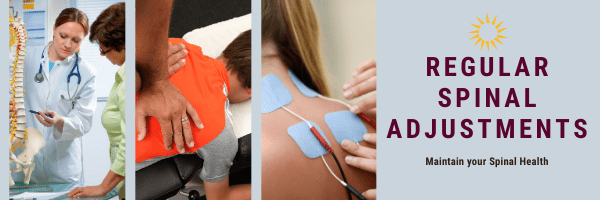LAHORE SPINE CARE
The recent years have seen a significant rise in discussions about mental health, urging individuals to acknowledge and address their emotional well-being. Concurrently, the importance of physical health, particularly spine health, remains pivotal for overall well-being. Interestingly, these two aspects of health are intricately linked. In this article, we delve into the complex relationship between mental health and spine health, exploring how nurturing one can positively impact the other.

Table of Contents
ToggleUnderstanding the Spine
The spine, comprising 33 vertebrae, intervertebral discs, ligaments, and nerves, provides central support for the body. It facilitates movement and flexibility and protects the spinal cord, underscoring its critical role in overall health and mobility.
Mental Health’s Influence on the Body
Mental health encompasses emotional, psychological, and social well-being, influencing thoughts, feelings, and actions. Conditions like anxiety and depression can manifest physically, contributing to various health issues, including spine-related problems.



The Mind-Body Connection
Stress and Spine Health
Chronic stress triggers hormone releases such as cortisol, leading to muscle tension and inflammation. Prolonged tension can cause spine misalignment and pain, potentially resulting in conditions like chronic back pain or sciatica.
Anxiety and Posture
Anxiety often manifests physically through muscle tension and poor posture, which can lead to spinal imbalance over time. This may cause discomfort, pain, and chronic spinal issues.
Depression and Physical Activity
Depression can reduce motivation for physical activity, weakening spine-supporting muscles and increasing the risk of injury and chronic pain. Sedentary lifestyles also contribute to weight gain, further stressing the spine.

Spine Health’s Impact on Mental Health
Conversely, spine health significantly affects mental well-being:
Chronic Pain and Mental Health
Persistent back pain can severely impact daily life, causing frustration, helplessness, and depression. Sleep disturbances from discomfort exacerbate these issues.
Mobility and Independence
Spinal problems can limit mobility, particularly in older adults, leading to social isolation and depression. Maintaining spinal health is crucial for preserving independence and quality of life.


Strategies for Enhancing Both Mental and Spine Health
Mindfulness and Stress Management
Practicing mindfulness techniques like meditation and deep breathing reduces stress and muscle tension, promoting better spine health and overall well-being.
Regular Physical Activity
Exercise strengthens spine-supporting muscles, improves posture, and releases endorphins that enhance mood and alleviate anxiety and depression symptoms.

Proper Posture and Ergonomics
Maintaining good posture while sitting, standing, and lifting prevents spine misalignment and pain. Ergonomic adjustments and breaks during prolonged sitting aid spine health.
Mental Health Support
Seeking professional help for anxiety and depression through therapies like cognitive-behavioral therapy (CBT) manages physical symptoms, benefiting spine health indirectly.
Holistic Approaches
Incorporating yoga and tai chi enhances mental and spine health by promoting relaxation, flexibility, and muscle strength.


Conclusion
Understanding and addressing the interplay between mental and spine health is crucial for holistic well-being. By managing stress, staying active, maintaining proper posture, and seeking mental health support, individuals can achieve a harmonious balance. Prioritizing both aspects of health is essential for a happier, healthier life.
Advantages of Lahore Spine Care
The advantages of Lahore Spine Care- Neuro and spine care provides a painless, non-invasive, and natural chiropractic therapy to restore spinal and joint alignment, relieve pain, correct posture, improve muscle function, enhance stability, and promote physical performance.
1. Improved mobility and balance.
2. Healing following surgery
3. Returning to pre-injury behavior 4. Treatment without drugs
5. Reliable diagnosis
6. Increasing physical health and athletic ability
7. Enhancing mental well-being 8. Steer clear of surgery
LAHORE SPINE CARE is proudly powered by WordPress